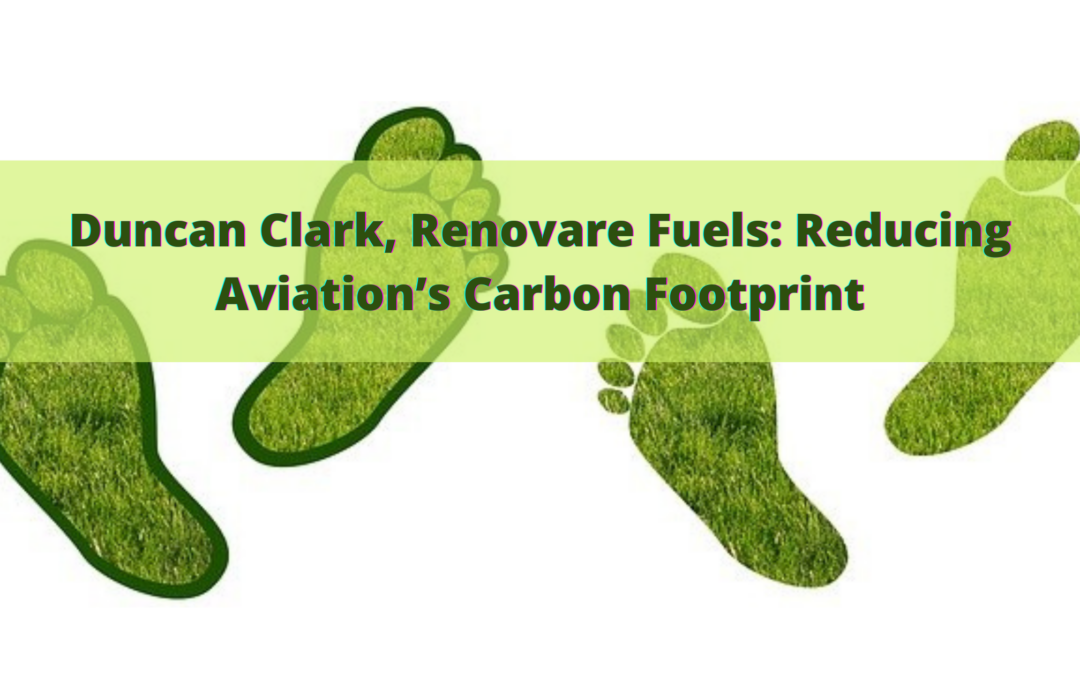In 2019, the air travel industry accounted for approximately 2% of total CO2 emissions. This
may sound like a drop in the ocean, but with 43 billion tonnes of CO2 released into the Earth’s
atmosphere every year, and 915 million tonnes of that produced by the aviation industry alone, it
is easy to see that even just 2% is still 2% too much.
Transitioning to greener technology has become a top priority for governments around the world.
In 2019, the UK Government announced that it had ringfenced significant resources in support of
such efforts.
In an interview with AltEnergyMag, Matthew Stone, Renovare Fuels’ Chairman, and a specialist
in carbon-neutral liquid fuels, outlined the company’s efforts to promote sustainable air travel.
The number of flights taken by consumers annually has increased consistently year upon year. In
fact, according to a study published by the International Council on Clean Transportation,
aviation carbon emissions grew 70% faster than experts had predicted from 2013 to 2018.
The impact of COVID-19 has had a dramatic effect on global air travel, curbing emissions
throughout 2020. However, conservationists are calling for continued efforts to improve the
sustainability of air travel in the long-term, pointing out that although the aviation sector is
currently absorbed by difficulties presented by COVID-19, it is still vital to improve
industrywide sustainability in the mid- to long-term.
Even with the challenges presented by COVID-19, the need for long-term change remains a
talking point throughout the aviation industry. Following its opening meeting, the UK
Department for Transport’s Net Zero Board announced that international shipping and aviation
would be included within the UK’s Net Zero Target in coming years as part of the government’s
commitment to greener technologies.
The UK’s Department for Business, Energy & Industrial Strategy (BEIS) recently announced
that it was investing £400 million in funding for green aerospace technology and research.
However, it is not simply the remit of aerospace design engineers to make aviation greener, with
end-users playing an increasingly important role.

A few years ago, the UN drew up its Carbon Offsetting and Reduction Scheme for International
Aviation, which was adopted by many airlines and users. There are numerous strategies airlines
can adopt to offset their emissions. Perhaps one of the most promising is blending biofuels into
traditional fuel stock.
Presided over by Chairman Matthew Stone, Renovare Fuels develops second-generation biofuels
for aviation. Derived from waste, these fuels offer substantial value, since their feedstock is sourced from biodegradable waste products produced by other sectors such as agriculture. In this way, Renovare Fuels produces greener fuels without requiring additional energy input or competing with existing crops or products, while simultaneously removing carbon from the environment during production. With a management team including Business Development Director Duncan Clark, Renovare Fuels are able to partner with aviation companies, quickly and effectively establishing sustainable
fuel supply chains with vast potential in terms of offsetting emissions.
Conservationists, policymakers and industry experts alike laud BEIS efforts to drive continued
research into greener aviation technologies. Renovare Fuels’ second-generation biofuels could
play a critical role in the global transition to green aviation.
With the International Civil Aviation Organization citing the development of sustainable
alternative fuels as critical to the air industry’s future, advancements achieved by Renovare Fuels
could prompt a turning point in aviation, promoting a brighter, more sustainable future.
P.S: For more FREE online learning opportunities, Join the EAT FREE Community! Where you can make a little money, making the planet better!


Recent Comments